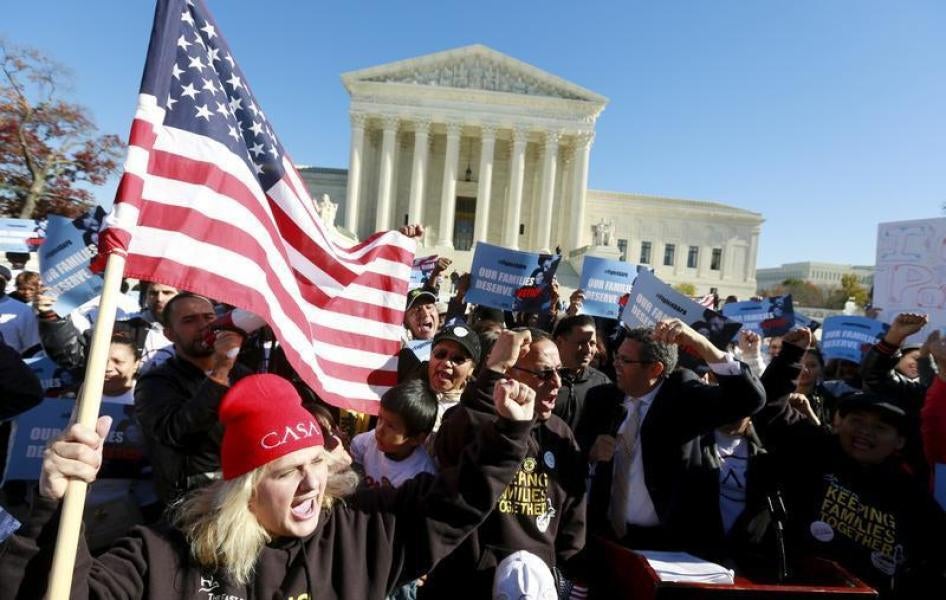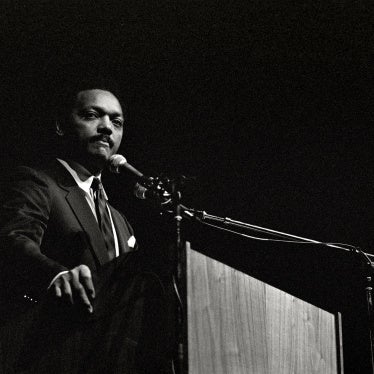(Washington, DC) – The United States Supreme Court’s split decision in United States v. Texas today leaves millions of undocumented immigrants at continued risk of serious human rights abuses, Human Rights Watch said today.
The decision effectively blocks President Barack Obama’s 2014 executive action on immigration, which would have provided temporary legal status to millions of undocumented immigrants, at least until the legal claims advanced by state governments opposed to the action are fully resolved.
“The executive action would have made a concrete, day-to-day difference in the lives of millions of families, although it would have excluded many other immigrants who also suffer from unjust and inhumane laws,” said Antonio Ginatta, US advocacy director at Human Rights Watch. “The Supreme Court’s decision in this case makes it even more urgent for the next president and Congress to take clear action for immigration reform.”
President Obama’s 2014 executive action on immigration sought to provide temporary protection to an estimated 4.5 million people from the threat of deportation. It would have expanded temporary legal status for migrants who came to the US as children, and offered a similar temporary status for parents of US citizens and permanent residents. The constant threat of deportation makes unauthorized immigrants exceptionally vulnerable to workplace abuses, sexual assault, lack of police protection, and separation from their families. The executive action would have significantly ameliorated these risks for millions of people.
The program was halted when a federal judge, in response to a lawsuit by 26 states, ordered the government to stop implementation while the states’ claims were decided. The Supreme Court’s split decision, while not ruling on the merits of the states’ lawsuit, leaves the lower court injunction in place.
The case may now go back to the lower courts for a decision on the merits. That process would in all likelihood be protracted, and would only be resolved only after the inauguration of the next US president. With the injunction upheld, millions of unauthorized immigrants will be plunged back into limbo in the interim.
Obama’s executive action is by no means a perfect or a comprehensive solution, Human Rights Watch said. It left major rights concerns unaddressed. The Obama plan did not address summary deportation and mandatory detention provisions that penalize immigrants convicted of minor crimes. It did not protect against deportation or provide other relief to the parents of US citizen or legal permanent resident children if the parents are apprehended at the border while trying to reunite with their families.
There were also no changes to the administration’s policies allowing summary deportation of asylum seekers arriving at the border without sufficient assessment of whether they are being sent back to serious risk of harm, and that promote the detention of recently arrived families.
“The Supreme Court’s inaction leaves no doubt that the president and Congress continue to bear responsibility for a dysfunctional and abusive immigration system that has deported and detained a record number of people in recent years,” Ginatta said. “The next president and Congress should urgently propose broader immigration reforms that better protect rights.”









